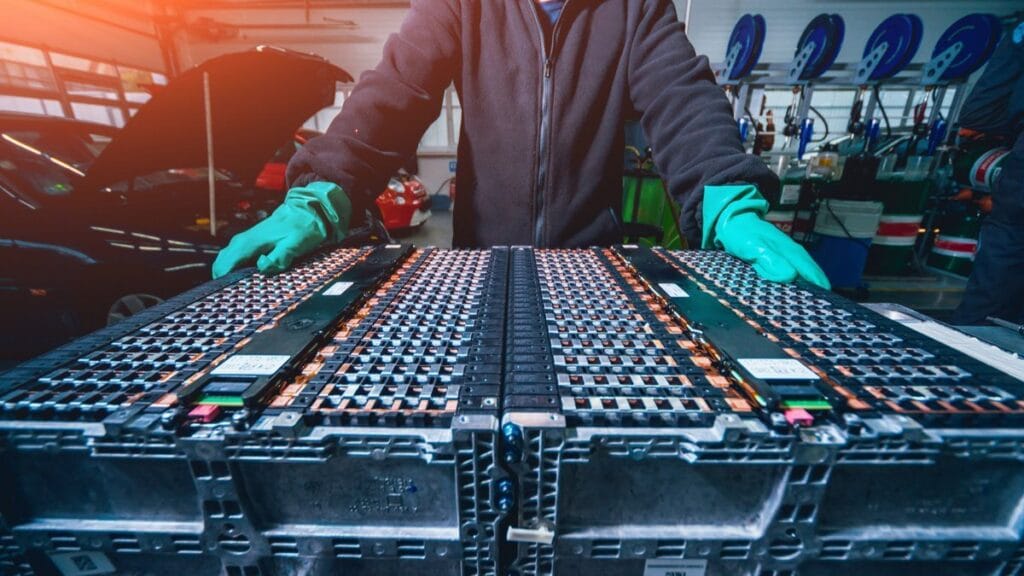A new industrial page is opening in Jorf Lasfar. The Moroccan fund Al Mada and the Chinese group CNGR inaugurated their joint venture COBCO on June 25, a complex dedicated to the production of materials for lithium-ion batteries. A project worth 20 billion dirhams, with a capacity to supply up to one million electric vehicles per year.
Located on more than 200 hectares, the site enters a new era: that of the local transformation of Morocco’s strategic metals – cobalt, phosphate, manganese – into high value-added components. The objective is clear: to integrate an innovative, competitive industrial sector focused on export.
### A dual strategic specialization
The first phase concerns the manufacturing of precursors for NMC (Nickel-Manganese-Cobalt) cathodes, essential for high-performance batteries. This will be followed by the production of LFP (Lithium-Iron-Phosphate) cathodes, valued for their reliability and moderate cost. With a capacity of 120,000 tons per year for NMC and 60,000 for LFP, COBCO aims to become a global player in the battery supply chain.
The factory also plans a recycling unit for black mass – the residues from end-of-life batteries – to extract and reuse critical metals. This will result in 30,000 tons processed annually and a genuine circular economy logic.
### An ambition driven by a strategic location
Just steps away from the port of Jorf Lasfar and the OCP group, COBCO benefits from optimized logistics and a natural connection to European, African, and Asian markets. The project aims to reduce dependence on Asian circuits and offer a credible low-carbon industrial alternative, at a time when Europe is preparing to tax high carbon footprint products.
Morocco finds a unique opportunity here: to position itself as a regional industrial hub, combining local raw materials, geographical proximity, and regulatory attractiveness.
### A tangible economic and environmental impact
From its construction, the site has mobilized more than 5,000 workers. Ultimately, 3,600 direct and indirect jobs will be created. But the stakes go beyond the numbers. COBCO is developing specialized training in partnership with CNGR, to train Moroccan skills in materials chemistry, quality control, and process engineering.
On the environmental side, the factory aims for 80% renewable energy supply by 2025, with a transition to 100% by 2026. The water used will be desalinated and recycled, and several international certifications are underway (ISO 14064, 14044, 50001), demonstrating alignment with the best global ESG practices.
### A strategic alliance between South and East
The union between Al Mada, rooted in the African economic fabric, and CNGR, a global player in battery technology, reflects modern industrial cooperation, combining local vision and global expertise.
With COBCO, Morocco is not just following the green revolution. It is actively participating in it, by building a cutting-edge local industry designed to meet the demands of climate, markets, and industrial sovereignty.


